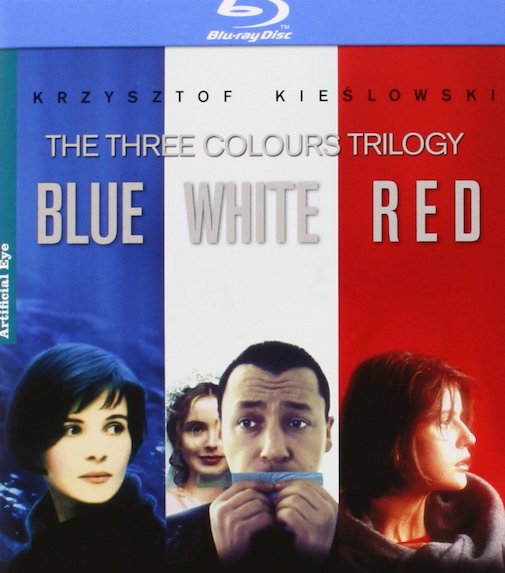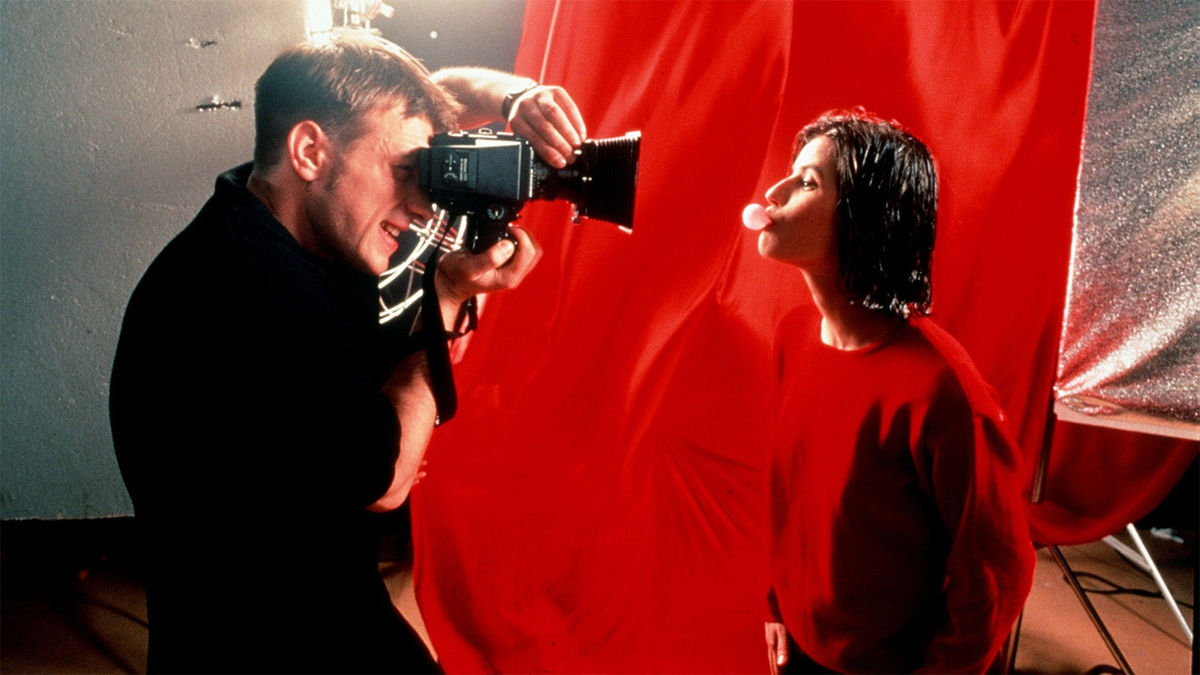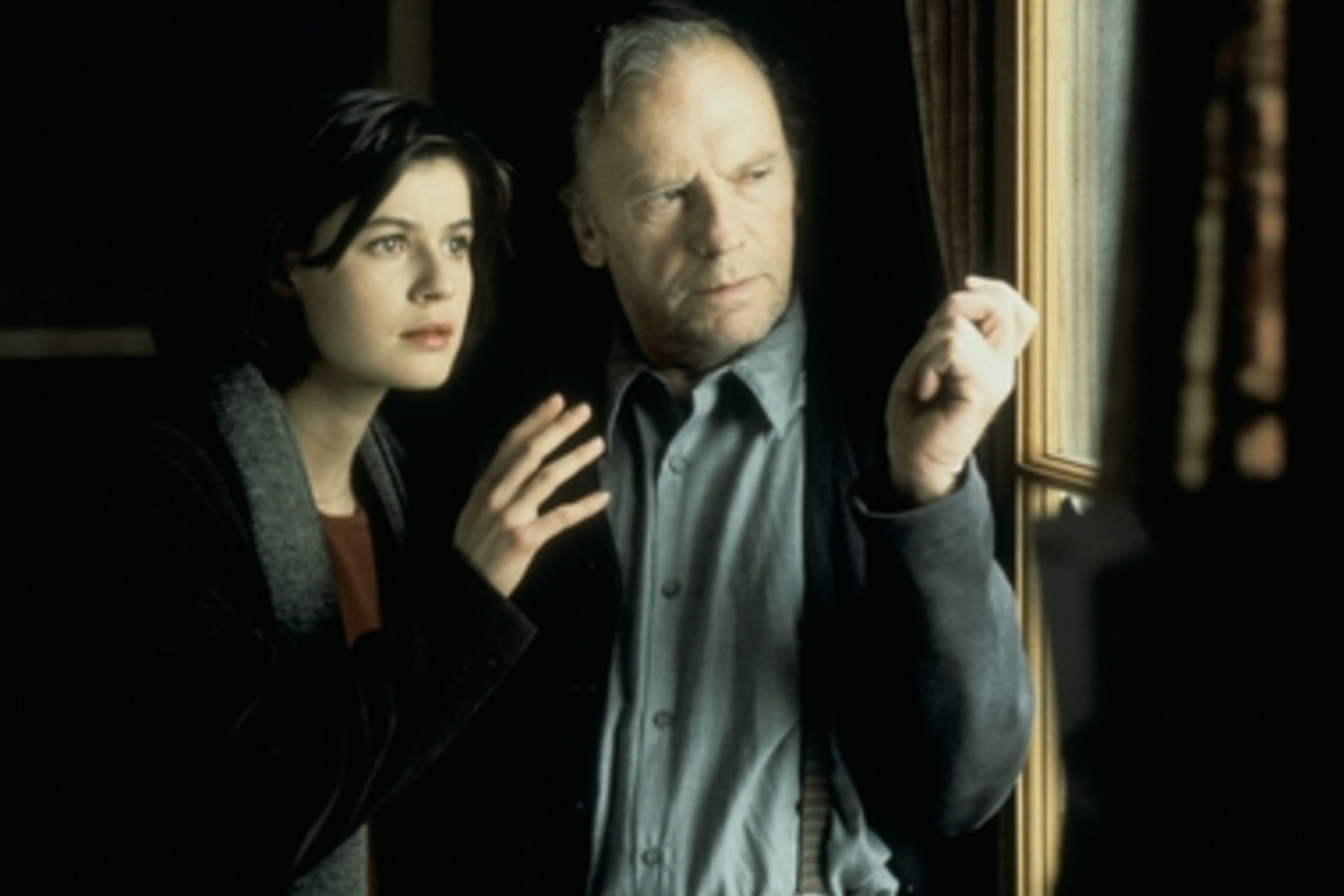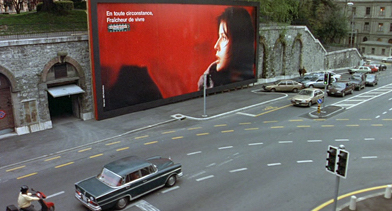 by Lynn Lee
by Lynn Lee
Transfixed. Transported. Exhilarated. These are words I don’t use lightly when I’m talking about movies, but they all apply to my reaction the first time I saw the final installment of Krzysztof Kieslowski’s Three Colors trilogy. And in large measure they still do. Even if the initial wonder has given way to a comforting familiarity, few films capture the universal human yearning for connection and kinship (or fraternité, the unifying theme of Red) as vibrantly yet delicately as this one.
I first saw Red some years after its initial release, at a special screening at the university I was attending. I went in knowing very little about the film except that the friend I went with had seen it before and spoke of it in glowing terms. He noted that in an ideal world I’d have seen the preceding chapters, Blue and White, but thought I’d enjoy Red even without having done so.
He was right.

In fact, I occasionally wonder if Blue and White – both of which I admire rather than love – suffered by comparison when I saw them later. Perhaps I’d have a different take if I’d watched the trilogy in the intended order. But I don’t think it would have altered my strong personal affinity for Red, which quickly became one of my all-time favorite films...
The narrative outline is deceptively simple: A beautiful but lonely student and part-time model named Valentine (Irène Jacob), through chance or fate, comes across a misanthropic retired judge (Jean-Louis Trintignant) with a disturbing habit of wiretapping his neighbors, leading to an unlikely friendship. At the same time, we observe one of the judge’s neighbors, a handsome young man (Jean-Pierre Lorit) whose career and romantic trajectory eerily echoes the judge’s, and wonder if the two storylines will ever intersect. Not to spoil a 25-year-old movie, but they do, in a big, even cosmic way.
And that’s perhaps what makes the film so haunting and memorable – that sense of cosmic fate, or divine mystery, in what determines whether or when people can meet or miss each other. Other movies, from Sliding Doors to Before Sunrise / Sunset have played with similar ideas, but without that brooding, supernatural, almost spooky dimension that heightens rather than diminishes Red’s emotional impact. The first time I saw it, I came away with dueling theories that the judge was God, or at least a god, and/or that he had managed to find a way to exist simultaneously in two timelines or two incarnations.

Revisiting it after many years, I was struck by how powerful that impression remains. Even as I wondered anew why I didn’t find the judge creepy, given his propensity for surveillance and for testing Valentine, I chalked it up to Trintignant’s demeanor, which shifts from forbidding to compassionate to affectionate without losing its basic inscrutability and air of omniscience. If the judge doesn’t actually control each dramatic turn of the plot, it damn sure feels like he does, all the way up to the climactic storm and the penultimate tableau of the survivors that neatly—perhaps too neatly—ties up the entire trilogy. I was also struck for the first time by the arbitrary cruelty of a fate or god that would drown hundreds of other people (plus one adorable little dog) just to bring two people together, not to mention the petty vindictiveness of killing off one unfaithful girlfriend. Red may be the warmest of the Three Colors, but that doesn’t mean it’s bereft of Kieslowski’s sardonic edge.
Any tendency to cynicism, however, fades with each fresh shot of Jacob’s face, which is as open and guileless as Trintigant’s is enigmatic. Valentine’s empathy and vulnerability are the emotional canvas of the film; it’s surely by design that the pervasive splashes of red seem most vivid when she’s in the frame, reaching their apotheosis in the iconic final shot of her profile. But my favorite image comes before that, during a moment in an emptied-out theater, when the judge takes Valentine’s hands and the warmth of her expression transfers to his, even as a storm builds outside. The scene feels elemental and profound, laden with the portent that something momentous is about to happen, yet also incredibly tender and intimate. As such, it’s a microcosm of the film as a whole, and embodies why it continues to hold a special place in my heart.

other celebrations of 1994
1994 Miscellania - Nathaniel R
The Client - Nathaniel R
Ed Wood - Anna
Four Weddings and a Funeral - Deborah Lipp
It Could Happen to You - Nathaniel R
Quiz Show - Anna
Reality Bites - Mark Brinkerhoff
Shallow Grave - Anna
Speed - Lynn Lee
Supporting Actress Smackdown -Nathaniel with special guests